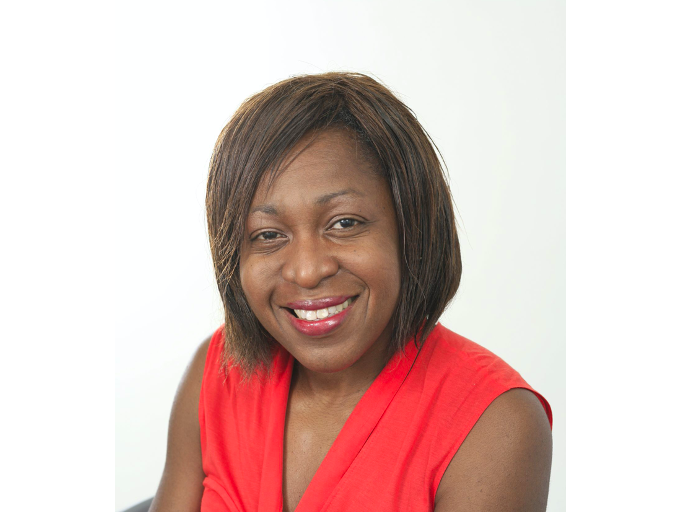Lead Governance Consultant at Bates Wells, a Senior Associate Consultant NCVO, a Chartered Secretary, Mediator, Coach and Facilitator, Tesse’s passion for bridge-building emerged as a result of her childhood years in care in Northern Ireland, where she experienced the Troubles.
She was admitted aged 16 to university to study Law for which she received various scholarships and went on to study a masters in Law.
Tesse has worked for the NCVO and became the head of the Trustee and Governance Team and the Commissioner for Equal Opportunities. She also served in various roles in the NHS for 13 years and has served as a charity trustee and guest lecturer at various London-based institutions.
In 2005, Tesse left NCVO to spearhead Bates Wells Onboard Governance Development Programme, which she still leads. She speaks on occasions at CASS business school and is now a fellow of the Chartered Governance Institute.
Resilience and hope
Tesse believes in the importance in making every day count and in the value of asking for support from others in dealing with racism. We need to have healthy support systems and must embrace change and challenge current systems. Tesse also believes that educational systems must expand to embrace difference at all levels, including board levels.
Charity Commission Report
The charity sector has not been inclusive of BAME or disabled people and this has hindered representation on their boards. More information can be found here.
Summary
15 years ago, people rarely talked about diversity, equality and inclusion, whereas now it’s highly valued and the corporate sector is making some improvements. Compliance used to be the main topic, but now the most important thing is about governance having a human face, as well as being compassionate. To have more diversity, Tesse argues that we must move beyond rhetoric and various barriers need to be overcome. Institutions need to actively encourage BAME applicants to put their names forward to sit on boards.
In general, at universities in the UK, support systems disproportionately benefit white people. Tesse discussed how we can reframe these to support marginalised people, especially black and Asian.
It is important to be proactive and not reactive. Tesse had to look for her own support systems and pointed out that such systems must be made overt, e.g. mentoring programmes. Institutions should listen to peoples’ experiences around racism and offer bespoke support.
One of the barriers in getting young BAME people involved in governance stuff is digital poverty. Tesse argues that a university should help people financially who do not have the right technology.
To tackle institutional racism, we must recognise micro-aggressions and make it possible for people to have their voice heard and create an environment where everyone feels safe. In addition, we must also have compassion as people who have the right intentions may sometimes get it wrong.
Key takeaways:
- Check in with BAME staff and ensure that you are offering adequate support
- Recognise that dealing with any aspect of racism can be emotionally draining
- We need to be more open about sharing our personal and professional challenges
- Ensure that through the course of any anti-racism work, the responsibility does not predominantly lie with the BAME individual
- Self reflection is fundamental in order to influence and interact with people.
- Look at the systems, policies and procedures and see where there are systemic failures
- Acknowledge that being honest is a part of the continuous journey of improvement. This might involve some tough conversations.
If you have any feedback, comments or questions related to these sessions, please email angellique.woolery@guildhe.ac.uk
If you would like to speak with Tesse directly, please email tesse@tesseakpeki.com
By Ben Joseph
Tesse’s Reflections:
Welcome Voices
I was delighted to speak during the recent anti-racism event. The wonderfully supportive guests engaged as I shared how I came to develop a passion for governance and bridge building from my childhood days in Northern Ireland. My lived experience is that participation and engagement in decision making can make a difference and shape futures.
Native Americans have an eloquent word for friend as ‘one who carries my sorrows on his or her back’. Sometimes a friend wants nothing more than your presence, a listening ear, a helping hand, a willingness to share their sorrow, to make time for them, knowing you understand what they are going through and that you care. The watchwords for 2020 are inclusion, diversity, wellbeing, mental health, connection and empathy. In 1864,the English philosopher and writer Issac Taylor wrote his definition of a family “bounded together by affection, esteem, respect, and unaffected regard for each other, one in unselfish attachment. A bond that holds that marvelous unit together.” This holds true today where building trust and psychological safety are important elements in ensuring social justice, fairness, equity, transparency and confidence. Positivity and optimism are possible in the face of loss and hopelessness.
In December my podcast Tesse Talks will be streaming. At Tesse Talks we are listening with an opening heart, not talking away problems, we are sharing your tears, we are letting you know we are available and ready to help, to extend our friendship, allyship and demonstrate that we have time for you. We are signposting you to great resources. Our stories are told with remarkable compassion and knowledge. Visit Tesse Talks on my website www.tesseakpeki.com. The words of Alice Walker are a reminder of our agency. Alice Walker reminds us that “The most common way people give up their power is by thinking they don’t have any.”

